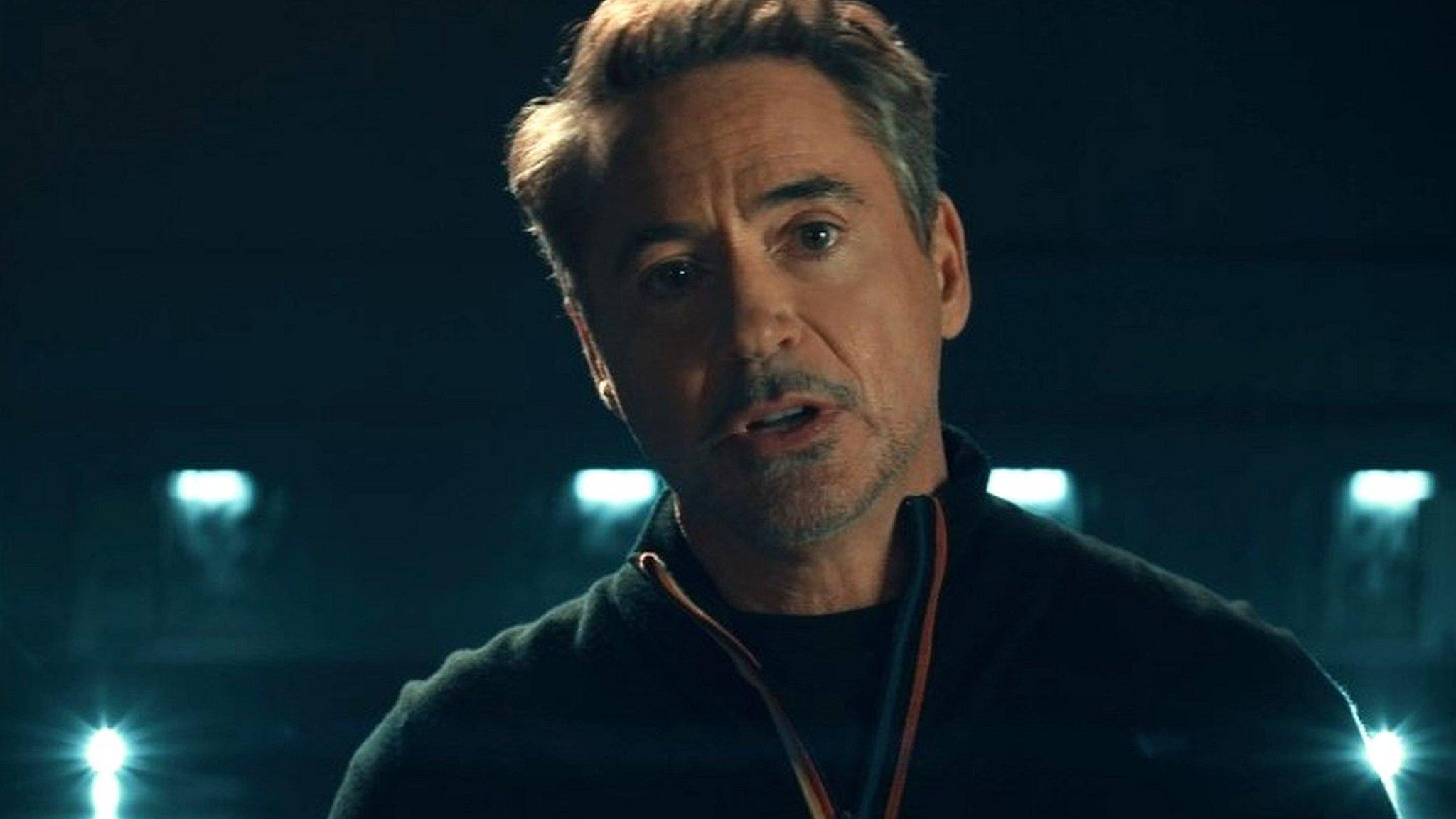AI ethics backed by Pope and tech giants in new plan
- Published
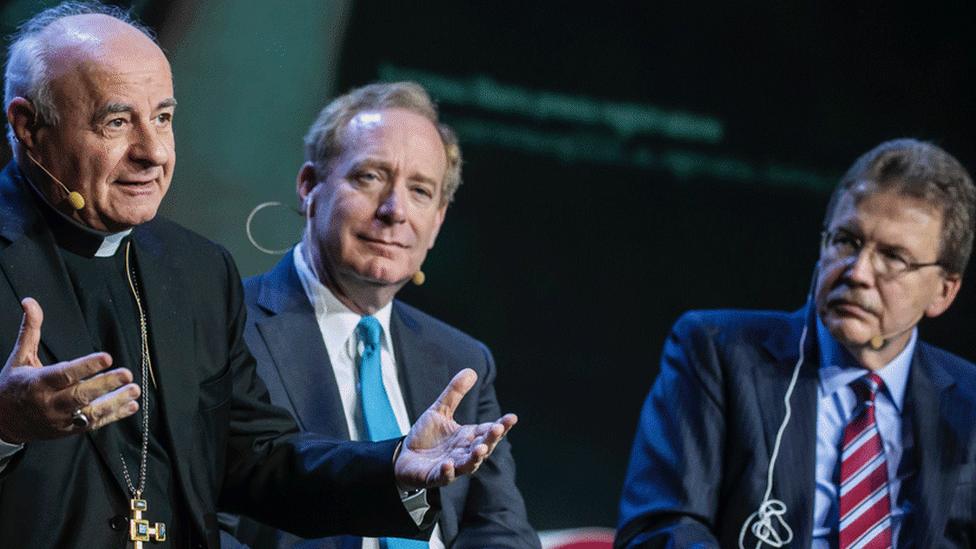
Archbishop Vincenzo Paglia, Microsoft's Brad Smith, and IBM's John Kelly III
The Roman Catholic Church has joined up with IBM and Microsoft to work on the ethics of artificial intelligence.
Leaders from the two tech giants met senior church officials in Rome, and agreed to collaborate on "human-centred" ways of designing AI.
Microsoft president Brad Smith admitted some people may "think of us as strange bedfellows" at the signing event.
"But I think the world needs people from different places to come together," he said.
The call was supported by Pope Francis, in his first detailed remarks about the impact of artificial intelligence on humanity.
The Rome Call for Ethics, external was co-signed by Mr Smith, IBM executive vice-president John Kelly and president of the Pontifical Academy for Life Archbishop Vincenzo Paglia.
It puts humans at the centre of new technologies, asking for AI to be designed with a focus on the good of the environment and "our common and shared home and of its human inhabitants".
Framing the current era as a "renAIssance", the speakers said the invention of artificial intelligence would be as significant to human development as the invention of the printing press or combustion engine.
UN Food and Agricultural Organization director Qu Dongyu and Italy's technology minister Paola Pisano were also co-signatories.
Tech and religious giants
Archbishop Vincenzo Paglia said the meeting came about after he developed a friendship with leaders of Microsoft and IBM.
Microsoft's Brad Smith said: "I think it's a challenging time because there is so much polarisation in so many parts of the world."
"We need people who can work to close the gaps that divide us – so in some ways I look at the Catholic Church, I look at a company like Microsoft, and I say why not?"
In September, Mr Smith argued that AI's development will affect the entire human race
The group wants to start a new dialogue on ethics and technology and invites other companies to sign up and work together.
"In this sense I have to say the Gospel inspiration is very important, because the Gospel pushed us to serve, to spread fraternity not to divide," Archbishop Paglia said.
Common ground
Mr Smith said agreeing a universal ethical paradigm on artificial intelligence may prove impossible because across human history people had not agreed a single ethical framework to rule their lives.
But he said there were ways to bring together many diverse viewpoints for the common good.
"I don't think it will be easy to develop a singular approach to ethics for machines since we haven't been able to do it for people," he said.
"But I do think we can find a lot of common ground and when you look at the world's great religions and the world's great philosophies, you do see some similar themes," he said.
'Immense potential'
The Vatican's interest in addressing ethical issues in technology has been growing for some time.
Last year it hosted a conference on the future of robotics featuring Japanese roboticist Hiroshi Ishiguro.
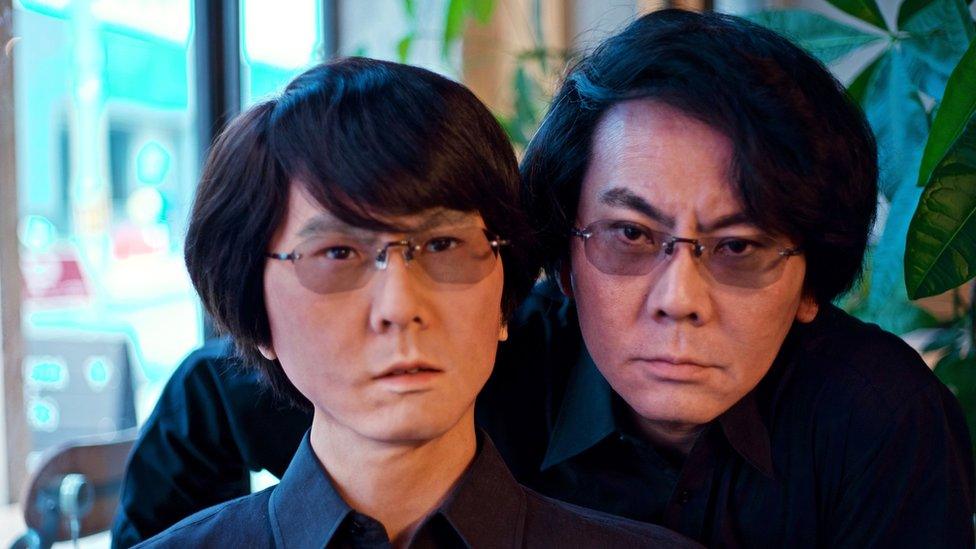
Japanese professor Hiroshi Ishiguro, with his robot double
Pope Francis was due to address the conference by video link, but had to pull out due to illness. The Pope is recovering from an apparent cold.
His official remarks about the AI announcement have been published on the Vatican's website, external.
He writes that while inequalities could expand "enormously" the dangers "must not detract from the immense potential that new technologies offer."
New jobs
IBM's John Kelly said every job in the world would be touched in some way by artificial intelligence in the immediate future.
He said the best scenario was humans not being replaced by machines, but working alongside them.
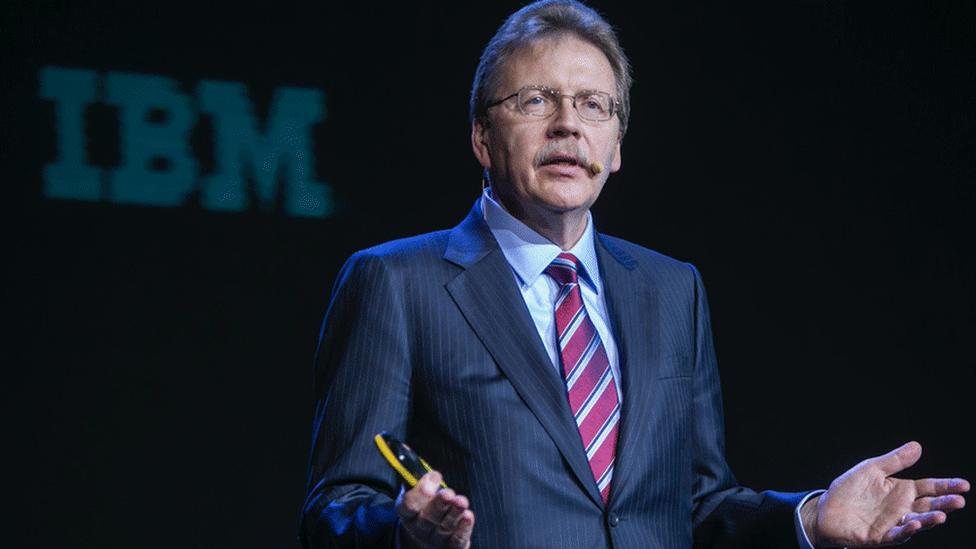
IBM's executive vice president John Kelly
"When we were first developing AI we were running AI machines in competition with humans and I think we learned from that in certain tasks, certainly machines can beat humans and certain tasks machines can't," he said.
"The really interesting part is when man and machine combine and works synergistically, so we are looking across the board for opportunities to do that whether it is in health care or whether it is in food supply chains, safety and security, or energy discovery and exploration," he said.
Humanising technology
All the speakers said they were inspired by the Pope's leadership in this area.
"I am convinced that the current Pope, Pope Francis, is God's gift for the entire world," said Archbishop Paglia.
"To humanise technology, this is possible only if you have a great vision," he said.
"This is the only perspective in order to avoid conflicts, war, ecological and human disasters," the archbishop said.
Mr Kelly says the views of the Pontifical Academy for Life and IBM match very closely in the ethical sphere.
"AI is so close to human behaviour and interaction this is really important to get right, so we are really proud to team up with the Catholic Church to get this one right," he said.
- Published13 December 2019
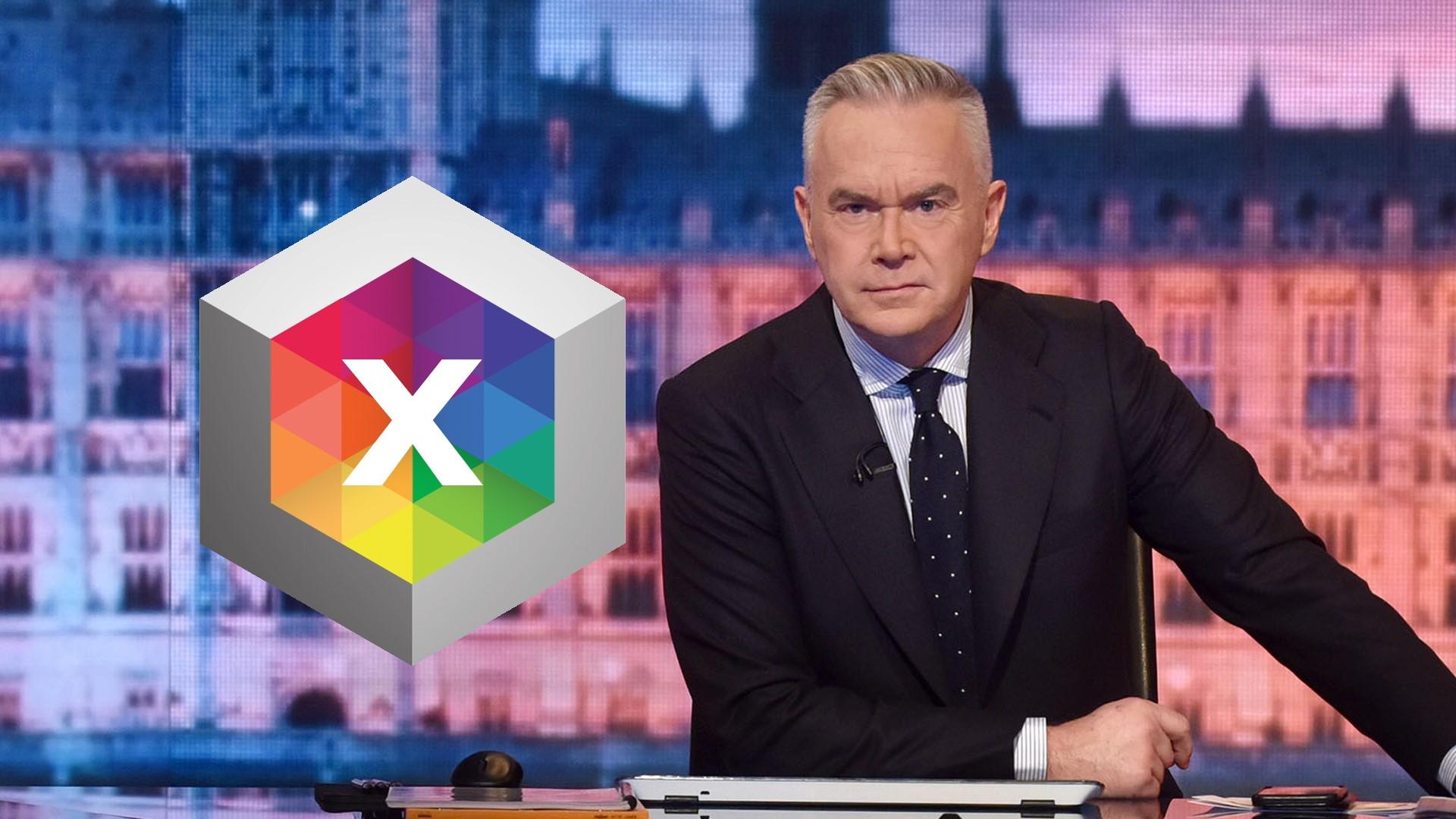
- Published23 September 2019
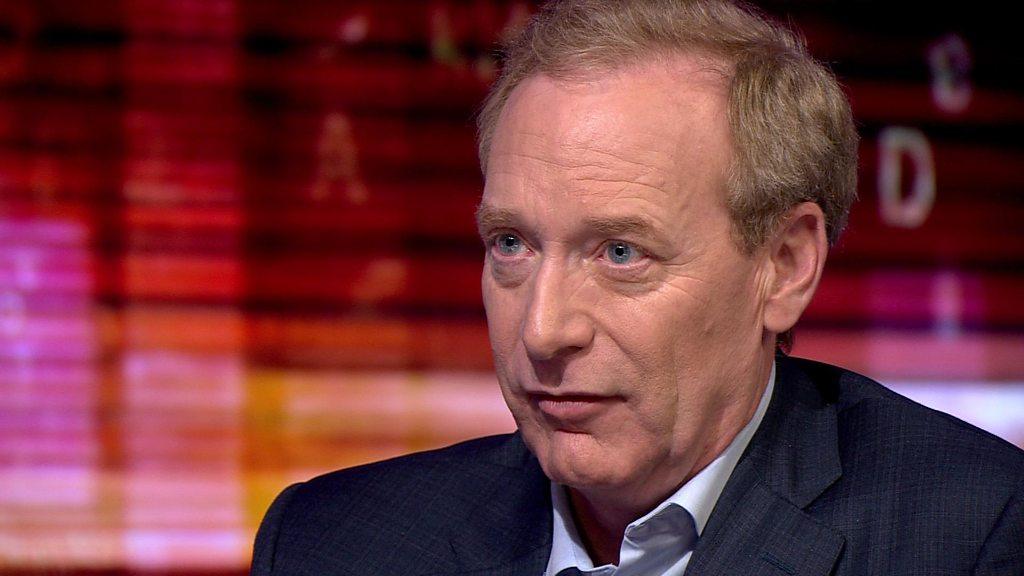
- Published2 December 2014
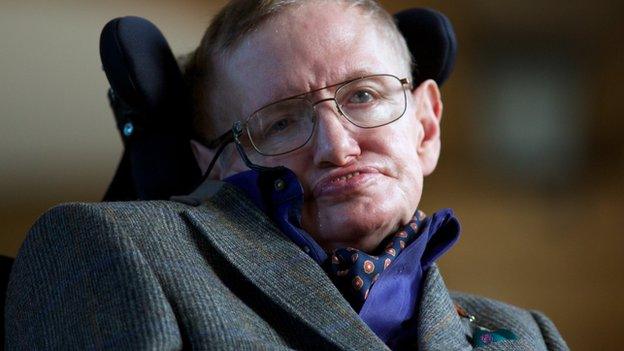
- Published26 March 2019
- Published20 January 2020
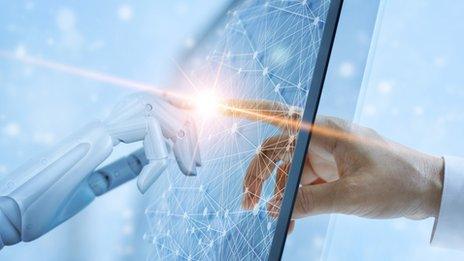
- Published19 February 2020
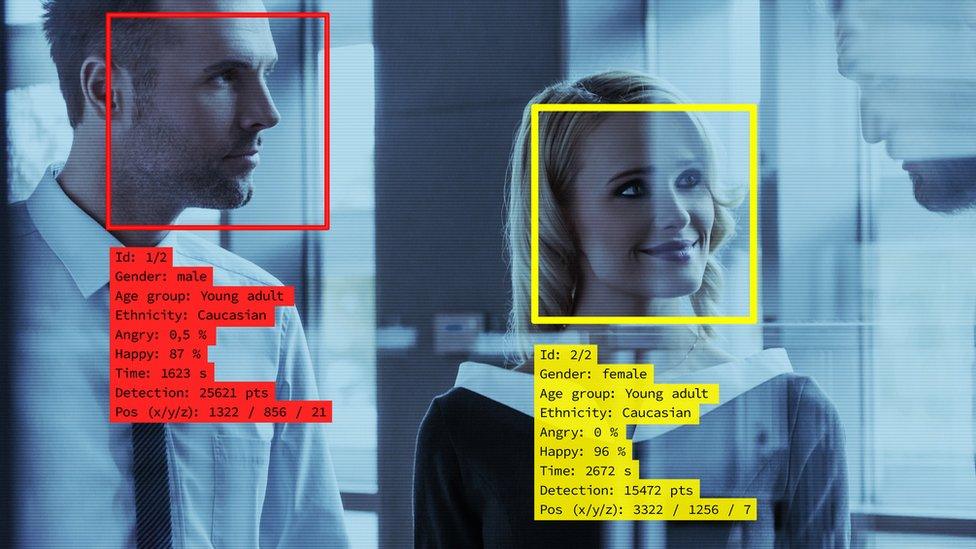
- Published12 January 2020
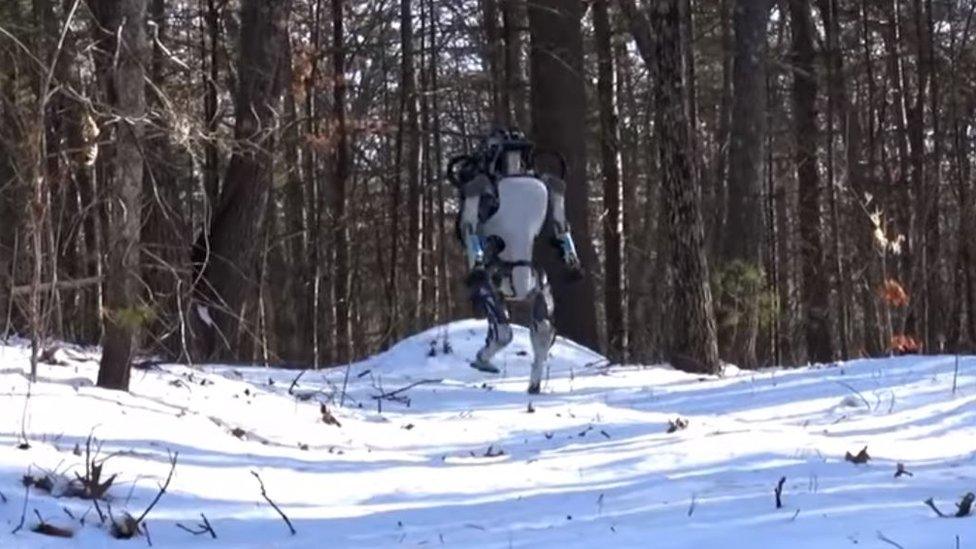
- Published19 December 2019
